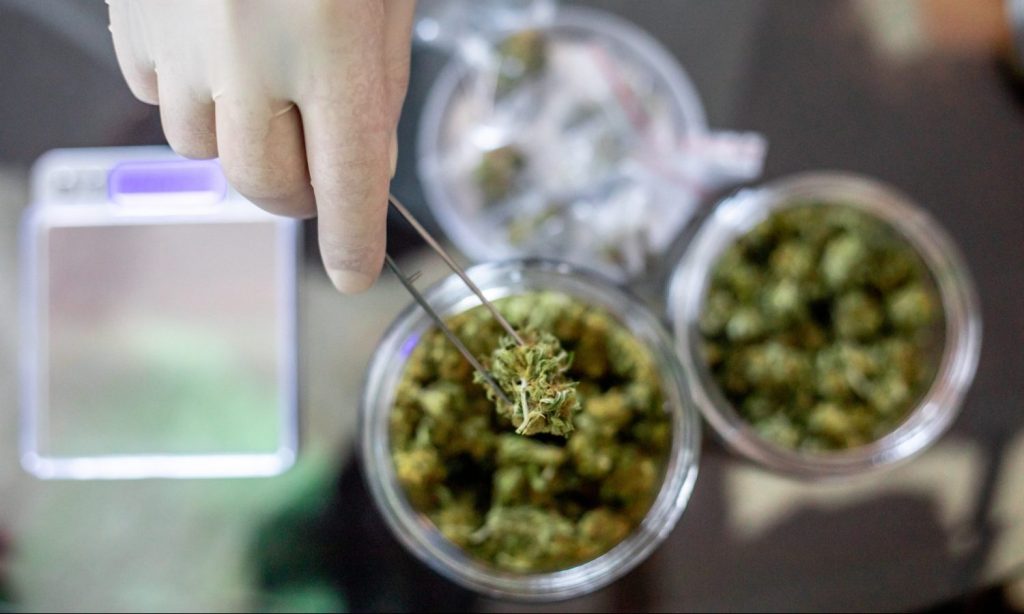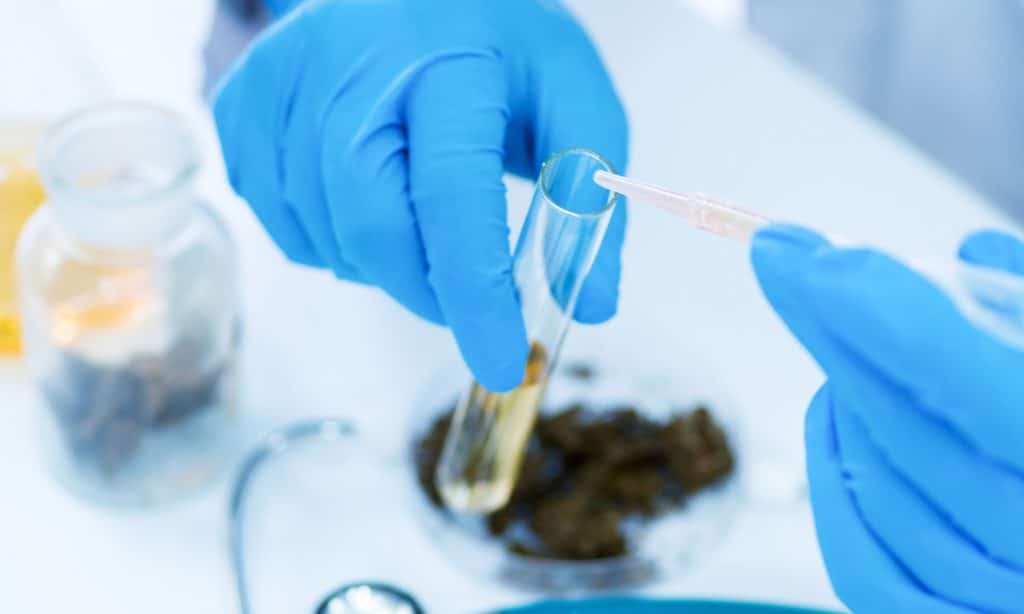
What is Hexahydrocannabinol (HHC) and is it legal?
This article originally appeared on Cannabis.net and has been republished with permission.
The newest cannabinoid and, I have to say, “another worthy addition” that’s impacting the market right, left, front and back is hexahydrocannabinol (HHC). This compound rose to prominence after regulations banned the sale and use of Delta-8 and has been cited as an intriguing analog of THC. Whether or not to agree with this description cannot be decided at this point, as there are several misconceptions about HHC cannabinoids.
The cannabis community certainly needs to be working overtime at this point, discovering cannabinoid after cannabinoid. Luckily for the community and related groups, perceptions of cannabis around the world are changing and are being backed by appropriate legislation. This has accelerated studies aimed at learning more about cannabis and its cannabinoids. Science blogs and mainstream media have something new to say about cannabis almost every week.
Photo by Nastasic/Getty Images
By returning your focus to hexahydrocannabinol, this article attempts to clear up some of the misinformation making waves about the newly discovered HHC. Even as I attempted to write this article, I encountered dozens of conflicting pieces of information about the compound’s origins, effects, safety, and legality.
What is HexahydroCannabinol (HHC)?
Many headlines around the world define the compound as a naturally produced cannabinoid found in trace amounts in pollen. In contrast, HHC is a synthetic cannabinoid compound created in a laboratory using selected cannabis extracts. These compounds are in league with the lesser-known cannabinoids, which until recently have been sidelined by the big guns—THC and CBD.
Due to increasing confusion over its legality, the synthetic cannabinoid is sold in all parts of the US. In the past few months, HHC has undergone its fair share of human trials and processing. The unavailability of HHC in cannabis plants has somewhat reduced its availability to people across the country.
History of Hexahydrocannabinol (HHC)
Hexahydrocannabinol was first developed in 1944 by a scientist named Roger Adams. He made the compound through the hydrogenation process of mixing hydrogen molecules with delta-9-THC. This connection has since remained in the shadows until it recently caught attention. Cannabis retailers sell the product to consumers to use as a substitute for THC.
Is hexahydrocannabinol strong?
For a compound to be compared to THC, it is expected to be almost as potent as THC. The exact potency of this compound is difficult to determine. The research found had obvious discrepancies and was not worthy of being placed behind a vault.
 Photo by CasarsaGuru/Getty Images
Photo by CasarsaGuru/Getty Images
Studies on the compound show it to be at least 69% as potent as delta-9-THC. This narrative places it alongside Delta-8 and Delta-9 in the hierarchy of strong THC variants. Other studies claim HHC is not as strong as Delta-8. Other sources say that HHC needs to be consumed in high doses to produce a semblance of high, similar to regular THC compounds.
RELATED: What Is THC-O, and Is It Legal?
Because different sources provide different information, it is best to wait until proper research has been done. HHC molecules affect cannabinoid receptors but have a unique method of doing so. Perhaps the lack of standardized HHC is why there are differences in each product (different HHC products are made with different 9R to 9S ratios). Products designed with high levels of 9R can be perceived as more effective as the 9R-HHC binds incredibly well to cannabinoid receptors.
Preparation of Hexahydrocannabinol (HHC)
As with any other property of HHC, there are several misconceptions about the techniques used to create this cannabinoid. Manufacturers’ silence about their production techniques has done little to help. It is clear that all HKW manufacturers use hydrogenation technology.
The hydrogenation process involves adding cannabis extract and other valuable compounds to hydrogen gas in a pressurized vessel. The double carbons in the cannabinoids are then converted into hydrogenated cannabis oil, also known as HCO. HCO is a dark golden oil with double carbon bonds that are naturally broken by hydrogen. Some manufacturers claim that the hydrogenation process can be accelerated by using catalysts such as nickel, palladium, iridium, and platinum.
RELATED: What Is CBG and How Does It Fight Antibiotic Resistance?
At the end of the process, the substance formed is rich in tetrahydrocannabinolic acid (HHCA) or HHC, depending on the type of cannabis extract used at the beginning of the process, whether decarboxylated or not. The fabric can then be further refined or packaged.
 Photo by bonchai wedmakawand/Getty Images
Photo by bonchai wedmakawand/Getty Images
Are HHC and THC similar?
HHC and THC have similar chemical structures. The main differences are the presence of an extra carbon bond, hydrogenated carbon, and an ester molecule in HHC. A Massachusetts retailer, Boston Hemp Inc., claims that these subtle differences in the structure of an HHC compound make it more stable than THC. The HHC seller claims that the added properties protect HHC products from light and heat. They also help extend the shelf life of the product.
Effects of Hexahydrocannabinol (HHC)
Sources state that HHC produces the same selling effects as THC due to its ability to bind to cannabinoid receptors, CB1 and CB2. Whether these speculations are correct or incorrect remains to be investigated. Before the period of intensive research, it is best not to believe the potential effects you see on the internet.
Legality of Hexahydrocannabinol (HHC)
HHC is considered a legal substitute for THC. Manufacturers back up this claim by arguing that the product was derived from delta-8-THC (the predominant cannabinoid in hemp flowers). They also say that HHC is legal because it naturally produces hemp seeds and cannabis pollen, that HHC production is simply natural, aid-driven extraction. The truth is that federal law has yet to determine whether the HHC cannabinoid is analogous to THC. If this is the case, it is likely to be immediately introduced as a Schedule I substance.
bottom line
To fully demonstrate the presence of hexahydrocannabinol in the cannabis industry, extensive testing must be conducted to categorically state the compound’s potency, physical properties, effects and after-effects, and medical utility. If left unchecked, demand could fall once the cannabinoid’s novelty wears off.
Consumers cannot rely on anecdotal sources. They need reports from clinical trials and studies to ensure they are not being harmed.
This article originally appeared on Cannabis.net and has been republished with permission.

Post a comment: